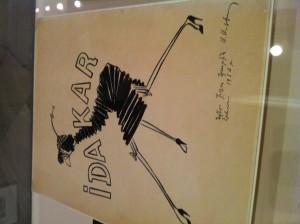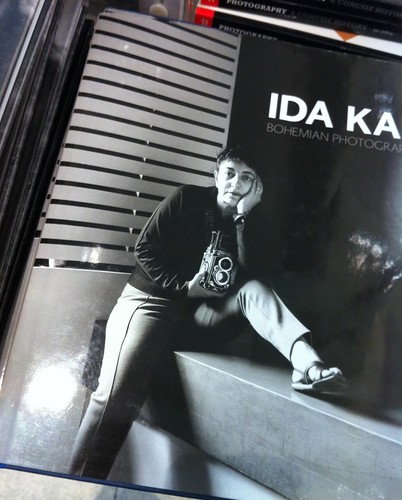The elementary satisfaction of seeing a Tomahawk missile vapourising a Gaddafi-owned military installation may well turn out to be the only satisfying aspect of operation ‘Odyssey Dawn’, as the current UN-legitimised attack on Libya is code-named. (En passant, who thinks up these daft names?) And it is, of course, a relief to see that the brute’s progress towards the massacre of Bengazi residents and rebels has apparently been halted. It would have been terrible if we had sat on our hands while he and his murderous regime got on with it. But it’s also pretty clear that nobody has thought this thing through. And that the West’s approach to the whole business is riven with contradictions that will ultimately make a nonsense of the whole deal, because at the root of it all is our addiction to Middle-Eastern oil, and we have no escape route from that. Not in my lifetime anyway.
Yesterday, the Guardian carried a sobering OpEd piece by Abdel al-Bari Atwan, who is the Editor in Chief of al-Quds al-Arabi, an independent pan-Arab daily newspaper published in London since 1989 and owned by Palestinian expatriates. He makes six useful points.
1. What are the real motives behind Odyssey Dawn?
While the UN was voting to impose a no-fly zone in Libya, at least 40 civilians were killed in a US drone attack in Waziristan in Pakistan. And as I write, al-Jazeera is broadcasting scenes of carnage from Sanaa, Yemen, where at least 40 protesters have been shot dead. But there will be no UN no-fly zone to protect Pakistani civilians from US attacks, or to protect Yemenis. One cannot help but question the selective involvement of the west in the so-called “Arab spring” series of uprisings.
And what about the freedom protestors in the US’s valued ally, Bahrain, gunned down and/or beaten by a regime emboldened by tanks dispatched across the causeway by Saudi Arabia (ditto)? And then there’s the question of which Arab states actually support the action. “At first”, writes Mr Atwan, “the signs were good: the Arab League endorsed the move last week, and five member states seemed likely to participate. But that has been whittled down to just Qatar and the UAE, with Jordan a possible third. This intervention lacks sufficient Arab support to give it legitimacy in the region”. As I write (Sunday afternoon) we are seeing the Arab League backing away now that cruise missiles have started to fly.
2. Why are Libya’s two immediate neighbours — the ones that started this Arab Spring — not participating in Odyssey Dawn?
“Democratic countries helping their neighbours would have been in the spirit of the Arab uprisings”, writes Atwan,
“and would have strengthened the sense that Arabs can take control of their future. It could have happened too: Egypt gets $1.3bn of US military aid a year. Diplomatic pressure by Hillary Clinton could have brought that mighty war horse into the arena, or at least encouraged Egypt to arm the rebels. Instead, an Egyptian foreign ministry spokesperson stated categorically on Wednesday: ‘No intervention, period.'”
3. Gaddafi may be crazy, but he’s also shrewd and knows how to play to the Arab street.
At the moment he has little, if any, public support; his influence is limited to his family and tribe. But he may use this intervention to present himself as the victim of post-colonialist interference in pursuit of oil. He is likely to pose the question that is echoing around the Arab world – why wasn’t there a no-fly zone over Gaza when the Israelis were bombarding it in 2008/9?
Unlike in Tunisia and Egypt, the uprising in Libya quickly deteriorated into armed conflict. Gaddafi could question whether those the UN is seeking to protect are still “civilians” when engaged in battle, and suggest instead that the west is taking sides in a civil war (where the political agenda of the rebels is unknown).
4. What will be the long-term impact of intervention on Libya?
Libya may end up divided into the rebel-held east and a regime stronghold in the rest of the country which would include the oil fields and the oil terminal town al-Brega. There is a strong risk, too, that it will become the region’s fourth failed state, joining Iraq, Afghanistan and Yemen. And that ushers in another peril. Al-Qaida thrives in such chaos; it played a key role in the Iraqi and Afghan insurgencies and is based in Yemen – and it may enter Libya, too.
5. There’s no certainty that Gaddafi will not survive this.
What then? “Boots on the ground?” Whose boots?
6. There’s the possibility that the natural course of the Arab Spring will be derailed by this — especially if Gaddafi succeeds in persuading Arabs that Odyssey Dawn is really just another colonialist enterprise in which Britain and France are the glove-puppets of an oil-hungry US? In another thoughtful piece — this time in the Observer — Neal Acherson quotes the lines from W.B. Yeats’s poem The Second Coming:
The blood-dimmed tide is loosed, and everywhere
The ceremony of innocence is drowned
Everywhere one looks, one sees politicians caught between rocks and hard places. The West wants to crush the monster that it had, until very recently, assumed it had house-trained. But in other parts of the Arab forest, the autocratic kleptocracies who are its staunchest (i.e. oil-supplying) allies are getting ready to use any means at their disposal, including wholesale massacre, to prevent democratic uprisings in their jurisdictions. In that sense, Bahrain is a dry run for what comes next. If King Abdullah and his murderous entourage decide that the only way to put down a Shia uprising in Saudi Arabia is to gun down demonstrators in their hundreds or thousands, will there be an Operation Odyssey Dawn II to protect Saudi citizens from their own brutal leaders? You only have to ask the question to realise the absurdity of it.
The common thread which stitches up our hypocrisy is, as Neal Acheson says,
the world’s convulsive greed for energy – whether nuclear or fossil. It’s that greed which makes people rush in with cowboy repair solutions, failing to seek the real sources of a problem. Fukushima is only one example. Here we jump into Libya, after a dirty deal with Arab autocrats to win their support against Gaddafi at the price of letting them suppress people’s struggling for justice in Bahrain or Saudi Arabia. And that’s another old story. Back in 1953, short-term lust for oil drove the British and Americans to overthrow Mohammad Mosaddegh’s democratic revolution in Iran, a fatal interference which ultimately led to the tyranny which rules Iran today.
So while I’m pleased and relieved if Gaddafi’s advance on Bengazi has indeed been halted, I can’t see the Libyan story unfolding in anything other than dangerous and messy ways. The only hope is that conclusive demonstration of the West’s resolve and military power might persuade those around Gaddafi that the time had come to dump him. In a way, that’s what happened in Egypt. But Libya looks very different, and all the bets are off.
 She was billed as a “bohemian photographer”, which was intriguing, and her work was unknown to me. Turns out that she was an Armenian who went to study in Paris in the late 1920s and was much influenced by the artists she encountered there. She lived in Cairo for a while and came to London in 1945 with her second husband. She tried to set up as a theatrical photographer, but seems to have more success with painters and sculptors, and these are the basis for the NPG retrospective.
She was billed as a “bohemian photographer”, which was intriguing, and her work was unknown to me. Turns out that she was an Armenian who went to study in Paris in the late 1920s and was much influenced by the artists she encountered there. She lived in Cairo for a while and came to London in 1945 with her second husband. She tried to set up as a theatrical photographer, but seems to have more success with painters and sculptors, and these are the basis for the NPG retrospective.

